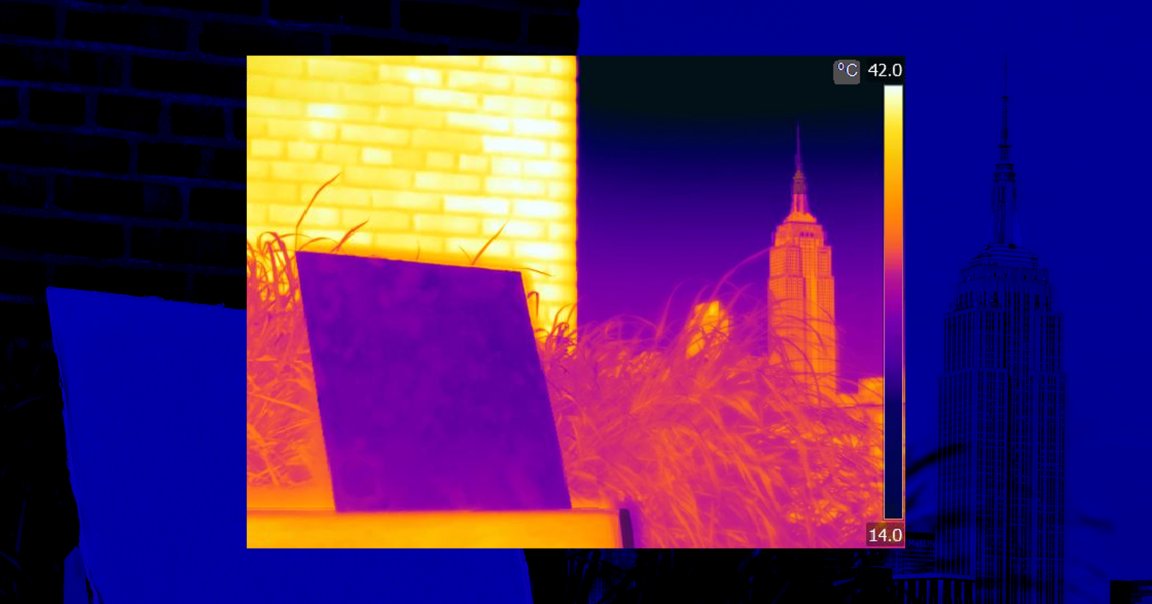
BEAT THE HEAT
Cranking up your air conditioner in the summer heat might seem like a good idea. But it’s not a great idea for the planet, or for your electric bill.
Now, researchers from Columbia University have devised an alternative to air conditioning that could keep your home cool without sending your power bill sky high. It’s a white polymer that reflects more than 96 percent of sunlight, and it comes in a dyeable, paint-like form, meaning we could use it to coat the sides and roofs of our homes to keep them cooler when the Sun is at its strongest.
TINY BUBBLES
The researchers describe the coating in a paper published Thursday in the journal Science. To create it, they engineered a mixture that forces water to settle into tiny droplets in a polymer. When those droplets evaporate, they leave tiny air holes behind. The holes, the researchers say, are what give the coating its remarkable sunlight-reflecting property.
The researchers put their concoction to the test under the oppressive heat of Phoenix, Arizona, painting it onto a copper sheet attached to sensors to measure the temperature. After 30 minutes, they found that the coating was 6 degrees Celsius (10.8 degrees Fahrenheit) cooler than the ambient temperature. That means it might not be long before we’re slathering the stuff on our homes in order to ward off the summer heat without cranking the AC.
UNDER THE SUN
The world is only getting hotter as we deal with the repercussions of climate change, and until we transition fully to renewables, using electricity to cool our homes will only exacerbate the problem.
Additionally, not everyone can use air conditioning — think people in low-income regions or places without electricity — and for those folks, this cheap, easy-to-implement way to lower temperatures could literally be a life-saver.
READ MORE: Keeping Things Cool With a Paint-Like Polymer [EurekAlert]
More on polymers: Unbreakable: Watch a Spray-On Polymer Let Objects Survive a 148-Foot Fall